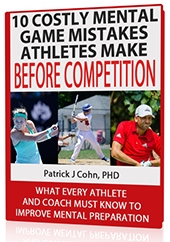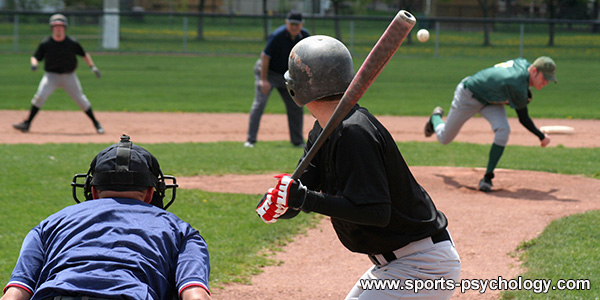How High Expectations Sabotage Mental Game
“Shoot for the moon… Even if you miss, you’ll land among the stars.”
Many athletes adopt this philosophy.
Unfortunately, athletes with this type of mentality heap excessive demands upon themselves believing this method will still result personal best or optimal performances.
The reality is that excessively high expectations rarely result in high-level performance.
When Expectations are High, so is the Pressure to Meet those Expectations
High expectations lead to increased pressure and others negative consequences for athletes and teams, such as:
- Reduced confidence
- Anxiety
- Fear of failure
- Overthinking
- Inability to move past mistakes
- Negative thinking
- Under-performance
One athlete who was crushed under the weight of high expectations was Mark Appel.
Appel was selected by the Houston Astros with the No. 1 pick in the 2013 MLB draft and immediately received a $6.35 million signing bonus.
Appel was heralded as the eventual cornerstone for the Astros pitching rotation after posting a 2.12 ERA during his senior year at Stanford University, striking out 130 batters and walking just 23 in 106.1 innings.
Appel was viewed “as risk-free a pitcher pick as has ever been made” by Sports Illustrated and “the most significant investment the Astros have made in their history in an amateur player” by the Astros’ front office.
Expectations weren’t just high for Appel, these expectations were sky high.
Appel didn’t come close to living up to those excessive expectations, compiling a disappointing 5.06 ERA during his five seasons in the minor leagues.
APPEL: “I go out and pitch, and it’s the same thing every time. I can’t get an out. Walk. Hit. Walk. Hit. Then I’m out of the game. What just happened? Now it’s like I have four days before I get my hopes up again, get excited, build that confidence, not caring what happened in the past. Then the same thing happens again.”
As a result, Appel announced early in 2018 that he is taking an “indefinite break” from professional baseball.
If Appel chooses to not further pursue his career in baseball, he would become just the third No. 1 overall pick to never make the major leagues.
Appel was “expected” to be a dominant MLB pitcher and consistently vie for the Cy Young award each year.
Instead, Appel succumbed to the pressure that results from excessive expectations and eventually lost his passion for the game he once loved.
APPEL: “I’m a guy who loves a game, who had expectations, goals and dreams and then has had everything tumbling, and then everything was unmet. Would I have loved to be pitching in the World Series? Absolutely. Some people have real struggles. I played baseball. I thought I was going to be great, and I wasn’t.”
This is just one story about how excessively high demands can destroy your athletic experience. If you truly want to achieve your potential, your goals should be within reach but also challenge you to stretch for their attainment.
How to Managing High Expectations:
You might have your own person expectations, such as I should not make any mistakes in the game or you might feel expectations from others, such as “I should be the leading scorer on the team.”
You first want to uncover these high expectations that sabotage your mental game. Make a list of what you demand of your game—I also call these the “Shoulds” and “Shouldn’ts.”
Instead of focusing on your expectations, replace them with more manageable goals that help you focus on your role on the team, such as to “find open space” or “make stops on defense.”
Learn how to manage your expectations with “The Confident Athlete” audio program
Related Sports Psychology Articles:
- How to Set Aside Expectations
- Tips for Slump Busting for Athletes
- Learn From The Pros For a Stronger Mental Game
Free Mental Toughness Reports

Get instant access to a mental game report to improve your mental toughness. Are you making one or more of these “deadly” mental game mistakes prior to competition? You can improve your mental game with one of our free sports-specific reports below.
with our free mental toughness reports, you’ll:
- Discover if you have positive or negative pregame jitters.
- Identify your pre-competition mental game mistakes.
- Learn the important pregame mental skills to boost your performance and success!
Learn how mental game strategies can boost your mental toughness in sports with Dr. Cohn’s free mental game reports!

